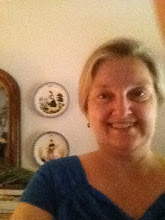
My interest in bookbinding began when I noticed the uniformity and condition of the books I saw on our visit to the Trinity College Library in Oxford.
This week we went to Dublin and saw the book of Kells. The Book of Kells is a 9th century manuscript of the four Gospels illuminated by Irish monks. Simultaneously the prize and plunder of epic conflicts in Ireland, the book survived, having been given finally to Trinity College in Dublin for safekeeping. Along with the 4 books themselves, there was a display of the art of bookmaking and binding. As part of the exhibit there was a wonderful video of a book being bound. The process of making a book was the product of many skills. Binding the book, preparation of the materials like leather and glue, twine and paper, and the preparation of print, ink, plates and the putting together of the quires were all separate activities performed by skilled crafts persons and each craft evolved its own set of skills.
For this part of our trip, the old travel narratives, both their content and their form as books were to be the focus. What we learned was that the meaning of books seemed to arise and dissolve with the times and the cultures they inhabited. Books were a way of organizing and transmitting knowledge. The limits of the technology of bookmaking formed the limits of the way we organized and diffused knowledge. (The knowledge could only go as far as the book could travel.) In cultures that evolved in the age of the book, the diffusion of knowledge depended on the availability of scholars and their books. The book was precious because it contained knowledge, and without the book, the knowledge was lost.
These days knowledge - some kinds anyway - travels without covers and without paper or ink. The limits of bookmaking technology no longer apply. The development of content and the imprimatur of peer reviewed scholarship is still done "the old fashioned way" but it is as if the content of books themselves have escaped their covers and scattered, exposing the nature of knowledge to a larger society. Where books and therefore knowledge once seemed finite and distant, a different understanding of knowledge has evolved with time. The big secret is out. Knowledge can be created and it can change.
We have come a long way from the bookbinders.

No comments:
Post a Comment